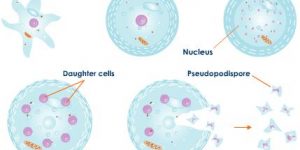 Evolution is the changes in the genetic facets of biological populations throughout consecutive generations. The evolutionary progressions lead to diversity at all levels of biological organization, which includes individual organisms, species and molecules such as proteins and DNA.
Evolution is the changes in the genetic facets of biological populations throughout consecutive generations. The evolutionary progressions lead to diversity at all levels of biological organization, which includes individual organisms, species and molecules such as proteins and DNA.
Studies have shown that life on earth started and progressed from one universal common ancestor about 3.7 billion years ago. The divergence of life and continual speciation can be deduced by related DNA sequences or from collective sets of morphological and biochemical traits. With the help of fossil record and the existing species, those homologous traits and DNA sequences can be utilized to recreate evolutionary histories. Besides that, those traits and sequences are usually more similar amongst species which share a common ancestor that is more recent. Both death and speciation have helped to shape the current biodiversity patterns.
Charles Darwin, an English naturalist, was the first person to use natural selection to come up with a scientific argument to support the evolution theory. When evolution results from natural selection, the process is inferred from three main facts related to populations:
1. The differences in trait are heritable;
2. Traits vary amongst individuals, resulting in differential rates of reproduction and survival;
3. More offspring can be produced than the amount that could possibly survive.
Therefore, when individuals die from a population they will be replaced by the offspring of parents who are more likely to survive and then reproduce in the same environment where the natural selection occurs. This process actually produces and preserves traits which are apparently suited for the functional roles that they perform.
It’s worth mentioning that the only known cause for adaptation is natural selection, but it’s not the only cause identified for evolution. Some other non-adaptive evolution causes include metamorphosis and genetic drift.
During the early part of the twentieth century, the disciplines of population genetics were used to integrate genetics with Darwin’s evolution theory by natural selection. The significance of natural selection as an evolution cause was recognized in other areas of biology. Furthermore, the philosophies such as progress and orthogenesis that were held previously about evolution became obsolete.
Over the years, many scientists carry on to study different facets of evolution by developing and testing scientific notions using observational statistics and performing both laboratory and field experiments. Biologists are in agreement that the descent with adaptation is one of the most unfailingly established facts in the field of science. The discoveries made in evolutionary biology have resulted in significant impact on the general society, in the traditional areas of biology as well as other academic fields such as psychology and anthropology.


